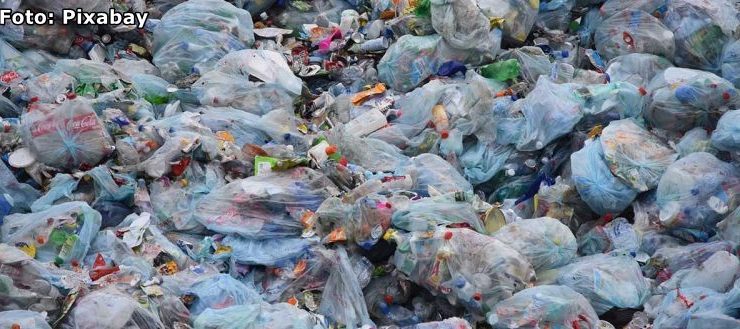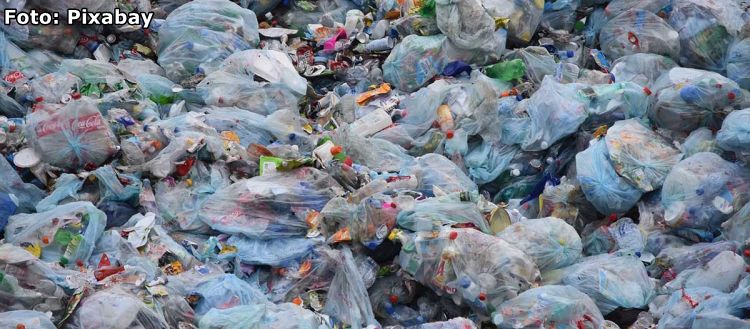

It is essential to regulate the recycling chain of plastic packaging waste
Efforts to recycle waste plastic packaging are stifled by regulatory and technology barriers
Major changes are needed in the way plastic packaging waste is recycled in England to dispose of preventable plastic waste by 2043 and to meet the government’s ambitions in its resource and waste strategy.
A new study by the University of Leeds and Brunel University, London, found that the current system of collection and management of waste plastic packaging harms local authorities and discourages efforts to invest in green infrastructure to exploit technological change.
This leads to an over-reliance on waste exports to the market with questionable recycling policies and also undermines consumer decision-making on how to dispose of plastic packaging waste. the report – ‘ Plastic Packaging – How Do We Get Where We Want To Be? He concluded that the cost of waste collection and management under the current system means that some local authorities have had to commit to contracts of up to 25 years to make them economically viable.
The study was funded by the Research and Plastic Innovation Fund and the Economic and Social Research Council, in cooperation with Ministry of Environment, Food and Rural Affairs (DEFRA) And the waste management sector and other stakeholders.
He also found that waste companies need to be confident that they can deliver a good return on investment – which encourages these long contracts – but that this makes it difficult for local authorities to implement changes to their infrastructure.
The researchers argue that reducing the cost burden on local authorities, through a more equitable distribution of value in the system, can encourage long-term investment, but regulatory and technological barriers must be addressed.
Major reforms within the resource and waste strategy, including consistency in waste collection, extended product responsibility and deposit return plans, are designed to address issues and retain value. The DEFRA collaboration with this project is a reflection of what DEFRA is doing to move things in the right direction.
The report analyzed the UK plastic packaging system in England using a new systems approach called “Optimizing the Complex Value of Asset Recovery” (CVORR) .
Co-author of the report, Andrew Brown, Professor of Economics From the University of Leeds, he said: “The report shows the importance of deep collaboration between economists, engineers and environmental scientists, and also working in collaboration with DEFRA, the waste management sector and other stakeholders.”
Professor Brown emphasized that “To take advantage of the tremendous long-term opportunities to preserve and create value through recycling of plastic packaging, it is essential to make a change in the entire system, guided by the new CVORR architecture.”
“Dr. Ilene Iacovido, Brunel’s Professor of Environmental Management, who conducted the study, said innovation in the waste and recycling industry is really fast, but our local authorities cannot take advantage of the current system.
“Confronting and breaking down barriers to current regulations and infrastructure is key to achieving radical transformations in the plastic packaging system and resource recovery systems in general. ”
And Dr. Iacovido: “The complexity of the plastic packaging system means that there is no perfect solution to many of the problems that plague the plastic packaging system, and that there are a number of targeted and enlightened ways to address these problems. The CVORR architecture helps us understand these problems and find solutions in a more straightforward and integrated way.”
Researchers cite the UK’s withdrawal from the European Union as a major challenge to achieving the 2050 target, but also an opportunity to implement the necessary changes as the government deviates from European regulations. This requires coordination of processes and structures across the value chain.
The report suggested new metrics for the government to use when monitoring and evaluating its success against the 2050 target. The developed metrics correspond to four valuable areas – environmental, economic, social, and technical – that allow for a systematic evaluation of the plastic packaging system, so it is necessary to make change and monitor this change.
The study, funded by the Economic and Social Research Council (ESRC), was written by Elaine Iacovido, Norman Ebner, Bianca Beers Andrew Brown.
Reference:
Multidimensional value metrics for evaluating England plastic packaging system and related target monitoring – EV0301
Henrik Cortez * translation and editing
In EcoDebate, ISSN 2446-9394, 04/27/2021
EcoDebate electronic magazine can be maintained thanks to technical support and e-magazine hosting Porto Fasil.
[CC BY-NC-SA 3.0][ O conteúdo da EcoDebate pode ser copiado, reproduzido e/ou distribuído, desde que seja dado crédito ao autor, à EcoDebate com link e, se for o caso, à fonte primária da informação ]
Inclusion in the EcoDebate online daily newsletter distribution list, ISSN 2446-9394,
If you want to be included in the daily newsletter distribution list, just send an email to [email protected]. Your email will be included and you will receive a message asking you to confirm your subscription.
EcoDebate does not practice SPAM and the confirmation requirement for the original email is intended to prevent your email from being incorrectly included by third parties.
Remove the distribution list from the daily newsletter of EcoDebate online magazine
To unsubscribe from this group, send an email to [email protected] or [email protected]. Your email will be removed and you will receive a message confirming the removal. Note that removal is automatic, but not immediate.
